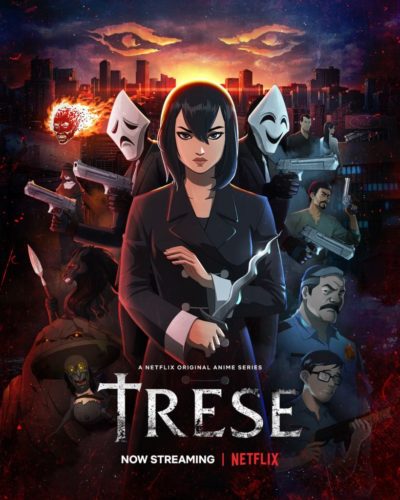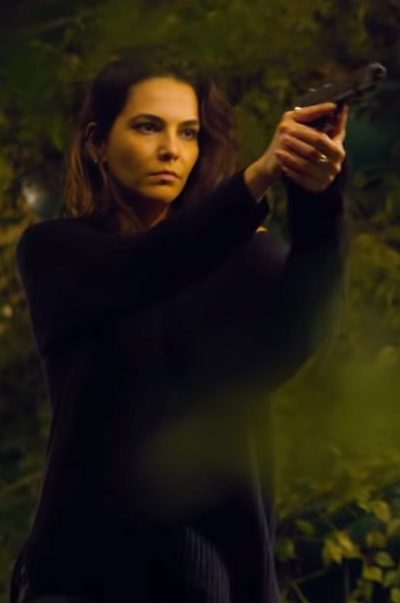★★★½
“Sex ‘n’ drugs ‘n’ cartels rule.”
 There are more famous narconovelas, such as La Reina Del Sur, but you can’t argue with the success of Senora Acero. Surviving for five seasons and a startling 387 episodes in the cut-throat world of Mexican television is no mean feat. Admittedly, there were hardly any characters who lasted the entirety of the show. But such is the nature of organized crime, especially in a show like this. Compared to the first season, it seems like the second helping significantly ramps up the action quotient. It feels like a single episode could not pass, without a car-chase, shoot-out, or at least guns being pointed at each other.
There are more famous narconovelas, such as La Reina Del Sur, but you can’t argue with the success of Senora Acero. Surviving for five seasons and a startling 387 episodes in the cut-throat world of Mexican television is no mean feat. Admittedly, there were hardly any characters who lasted the entirety of the show. But such is the nature of organized crime, especially in a show like this. Compared to the first season, it seems like the second helping significantly ramps up the action quotient. It feels like a single episode could not pass, without a car-chase, shoot-out, or at least guns being pointed at each other.
It begins with Sara Aguilar (Soto), a.k.a. “Senora Acero”, the woman of steel, sitting in prison, where she has been stuck for five years, awaiting formal sentencing [Mexican justice moves slowly, it would appear]. After her son is attacked, she escapes prison in order to help him, but gets caught and ends up back in jail, having been sentenced to a punitive 25 years. This is in part due to the interference of her estranged sister, Berta, who is now the private secretary to the Mexican President, and wields her influence maliciously to punish her sibling. But her best friend, Aracely (Litzy), finds the key to getting Sara’s sentence revoked, and her out of jail.
Life doesn’t exactly become much easier thereafter, as there’s still a state of near-war between the two main drug gangs. There’s the Jalisco cartel, led by Miguel Quintanilla, and Acasio “El Teca” Martínez, of the Tijuana cartel. Sara ends up taking the Jalisco side, stoked largely by her hatred of El Teca, and his chief henchman, “El Indio”, with whom Sara crossed paths in season one. However, that only fuels the fire as Martinez has long held a burning obsession with Sara. His guiding principal appears to be that if he can’t have Sara, nobody can. Sara has no problems using that obsession against him, but it’s a very dangerous game, especially when El Teca realizes he is being manipulated by her.
It also seems to delve significantly deeper into the relationship between the cartels and ‘legitimate’ business and political interests; quotes used advisedly. In this case, the corruption goes right up to the top, with the Mexican president very much in bed with the leader of one group of drug traffickers. Evidence of this connection is a powerful tool, though for obvious reasons, highly dangerous to anyone who possesses it. There is also the head of a major pharmaceutical company, who is using his company’s resources for less legal product; he thinks he can come up with a new drug that will give the high without the dangerous side effects.
The international aspect is well represented too, with another strong female character in Colombian drug lord (drug lady?) Briceida Montero, who seems fairly obviously inspired by Griselda Blanco, about whom we have written previously. There is an effort to involve Chinese traffickers at one point, though this doesn’t go far. On the other side, the DEA are involved. Though their gringo boss is most notable for Chris turning to me and expressing a fervent hope that, as I continue to learn Spanish, I do not sound like him when I speak the language. Mind you, she’s not exactly impressed with the gangster slang used by the likes of El Teca either. I’m clearly going to have to find posher series from which to pick up my diction…
The show does have one particularly memorable supporting character – though not in a good way. Marta Mónica Restrepo, a.k.a. ‘La Tuti’, is a sometime small scale drug dealer, sometime psychic, and always a slut, who also collects dolls. She ends up getting involved with… just about every male character who crosses her path, which makes her subsequent pregnancy resemble a daytime talk-show episode. Manipulative and fickle, she is easily our most “love to hate” character. Not just in the show, or narconovelas generally, but perhaps the history of our TV viewing. I suspect it’s entirely deliberate, so much credit to the writers, and actress Ana Lucía Domínguez, for making it so.
 There’s another aspect we found more genuinely enjoyable. El Teca finds himself a doppelganger, in the form of an immigrant worker from Colombia. Also kidnapping the man’s wife and daughter for leverage, his double is used to fool both the authorities in the Jalisco cartel. While the technical aspects for the depiction of El Teca and his twin are primitive – it’s mostly shooting from behind the shoulder, with an obvious stand-in – the characters are so utterly different, it’s often difficult to believe the same actor is playing both parts. Again, credit where it’s due, to José Luis Reséndez, for bringing both men to life with his performance.
There’s another aspect we found more genuinely enjoyable. El Teca finds himself a doppelganger, in the form of an immigrant worker from Colombia. Also kidnapping the man’s wife and daughter for leverage, his double is used to fool both the authorities in the Jalisco cartel. While the technical aspects for the depiction of El Teca and his twin are primitive – it’s mostly shooting from behind the shoulder, with an obvious stand-in – the characters are so utterly different, it’s often difficult to believe the same actor is playing both parts. Again, credit where it’s due, to José Luis Reséndez, for bringing both men to life with his performance.
It is, however, Sara Aguilar’s show, and she is the Sun around which all the other bodies revolve, in their elliptical subplots (some of which I could have done without, such as that about one character’s dreams of musical stardom). Much like Teresa Mendoza in Queen of the South, it’s Sara’s fierce loyalty to those on her side which is her most defining characteristic. She’ll got through hell for them, including her son, even after he has been turned into a junkie by her enemies. Needless to say, that’s an act which will not go unpunished. The ending proves quite satisfactory in this area, although also has the kind of cliffhanger, with Sara apparently badly wounded, that will only be resolved in series three.
Despite the tease at the end of the opening credits, with Sara wielding a large, automatic weapon, and quite a lot of heavily-armed arguments, she isn’t quite as personally involved as I might have hoped. Still, I guess delegation is a significant part of being a good leader, isn’t it? This was certainly enjoyed, and became a staple of morning entertainment for me, over several months. I think Chris was even getting into it more than she’d admit, as she drifted through and got ready for work. It may be a while before I have the stamina to start the next season, however. For there’s ninety-three episodes in that…
Creator: Roberto Stopello
Star: Blanca Soto, Litzy, José Luis Reséndez, Lincoln Palomeque
 I kinda agonized, for far longer than I should have, over whether this was a 3-star or 2½-star film. It’s probably 2¾. Or perhaps 2 5/8. No, 2 11/16. In the end though, it doesn’t matter. It’s just another in Megan Fox’s attempts to become the next Angelina Jolie, following in the footsteps of the similarly okay but not exactly memorable Rogue. Indeed, I initially thought this was by the same director, but turns out it’s a different director who uses initials in lieu of a first name. Anyway, with this one now available on Netflix, it will likely raise Fox’s action-actress profile. In terms of current rankings, she probably moves ahead of Ruby Rose in the rankings. Though that’s not exactly difficult.
I kinda agonized, for far longer than I should have, over whether this was a 3-star or 2½-star film. It’s probably 2¾. Or perhaps 2 5/8. No, 2 11/16. In the end though, it doesn’t matter. It’s just another in Megan Fox’s attempts to become the next Angelina Jolie, following in the footsteps of the similarly okay but not exactly memorable Rogue. Indeed, I initially thought this was by the same director, but turns out it’s a different director who uses initials in lieu of a first name. Anyway, with this one now available on Netflix, it will likely raise Fox’s action-actress profile. In terms of current rankings, she probably moves ahead of Ruby Rose in the rankings. Though that’s not exactly difficult.




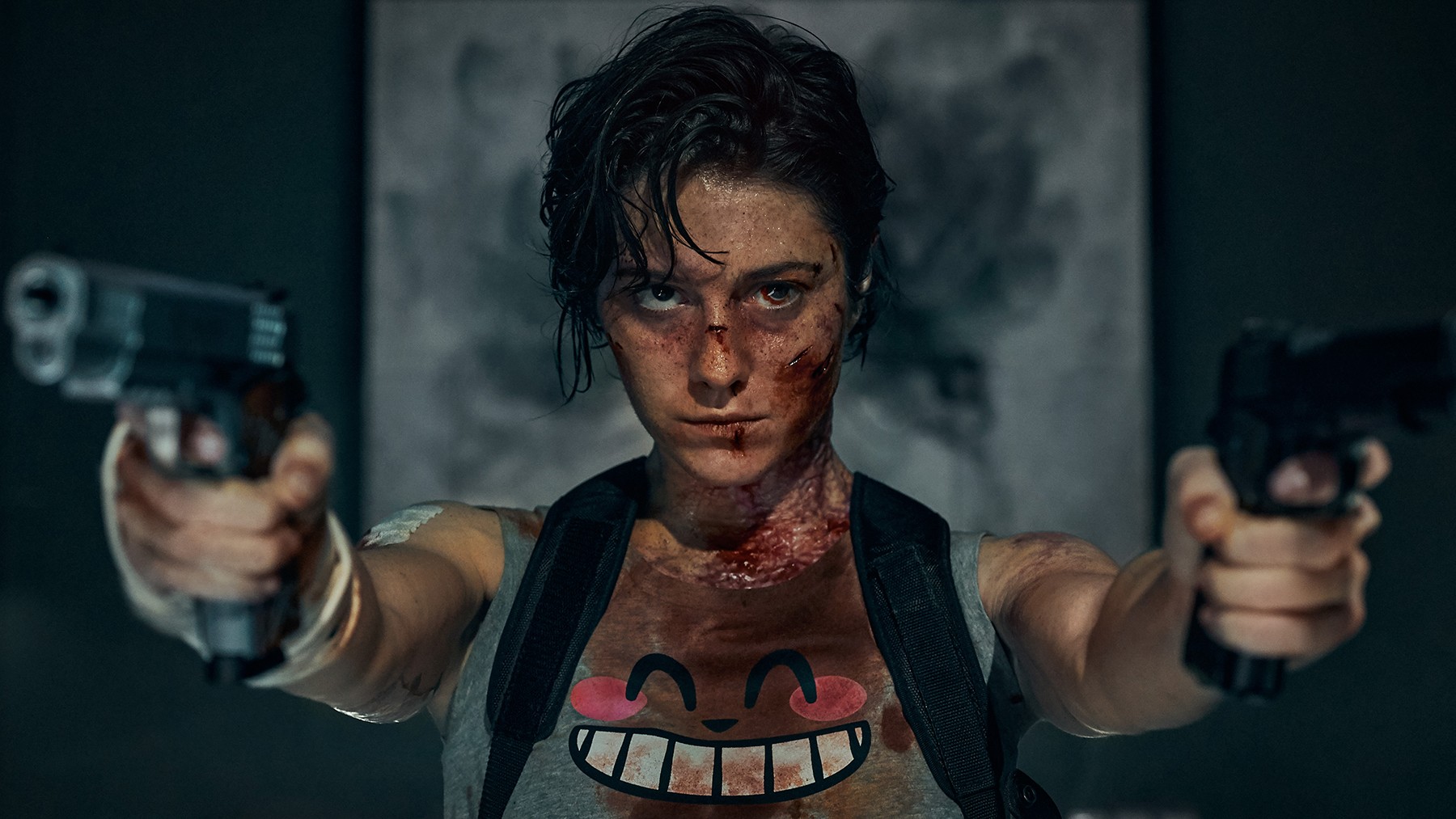 ★★★
★★★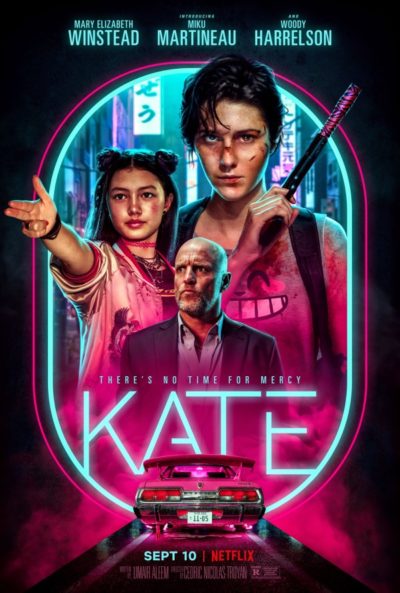 There is also, quite often, some kind of emotional resonance, in the cases where the child is not biologically related [when that is the case, you don’t typically need or get any more explanation, blood being thicker than water]. Maybe the kid acts as a surrogate, a replacement for one previously lost (Alien), or the heroine could never have. Or if a girl, the protagonist can perhaps see a younger version of herself. The other common theme is the use of the child as a key, to unlock the adult. Often, the latter has lost her humanity, typically through harsh circumstances, becoming largely a lone figure, with her emotions suppressed. The “childlike innocence” of the young person, to use a cliché, can be used as a psychological crowbar, pricing open the hard shell of the grown-up, allowing them to reconnect with their humanity. The more emotionally-driven immaturity also stands in contrast to the adult’s stoicism, often to an extreme degree.
There is also, quite often, some kind of emotional resonance, in the cases where the child is not biologically related [when that is the case, you don’t typically need or get any more explanation, blood being thicker than water]. Maybe the kid acts as a surrogate, a replacement for one previously lost (Alien), or the heroine could never have. Or if a girl, the protagonist can perhaps see a younger version of herself. The other common theme is the use of the child as a key, to unlock the adult. Often, the latter has lost her humanity, typically through harsh circumstances, becoming largely a lone figure, with her emotions suppressed. The “childlike innocence” of the young person, to use a cliché, can be used as a psychological crowbar, pricing open the hard shell of the grown-up, allowing them to reconnect with their humanity. The more emotionally-driven immaturity also stands in contrast to the adult’s stoicism, often to an extreme degree. 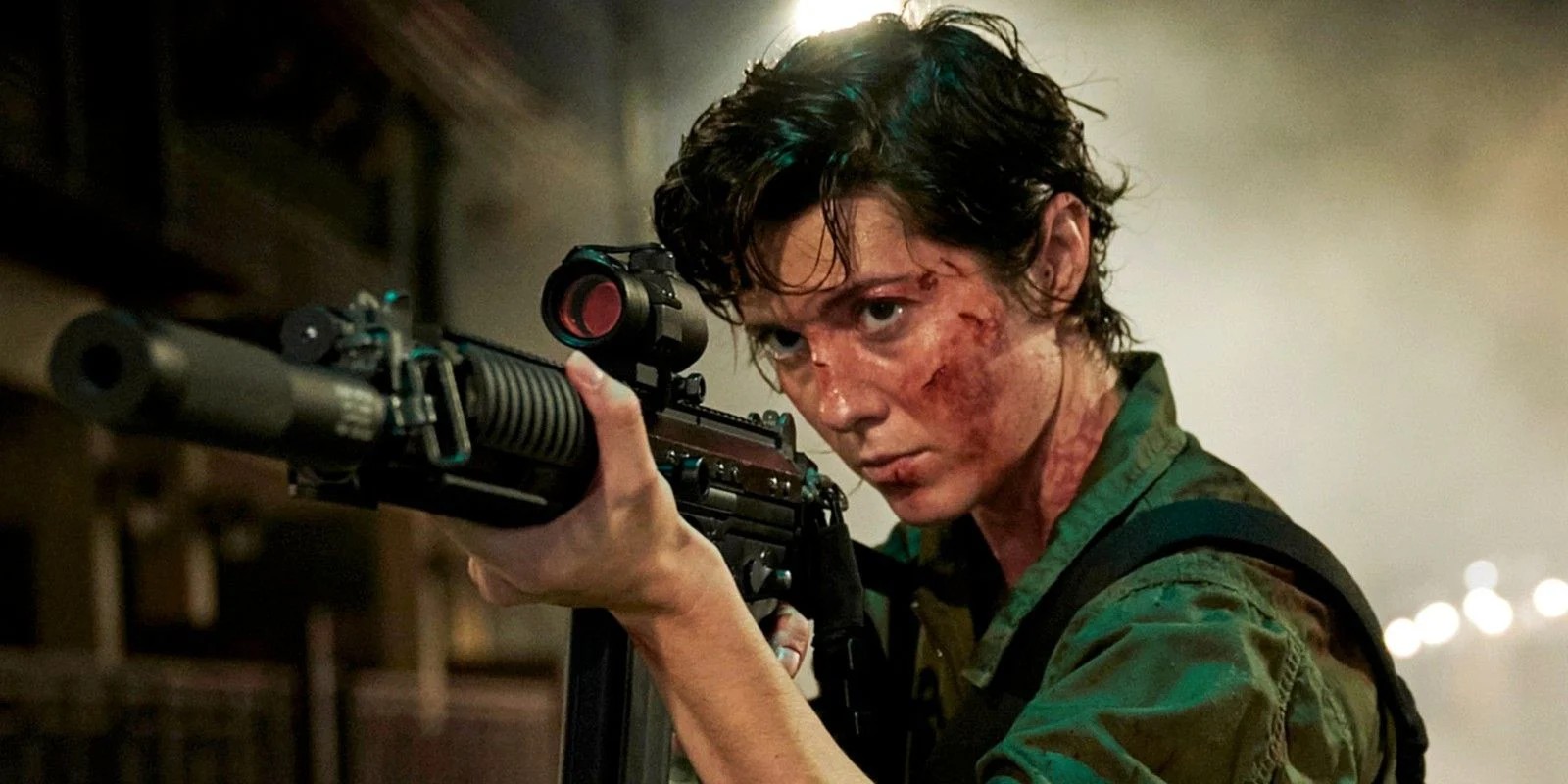
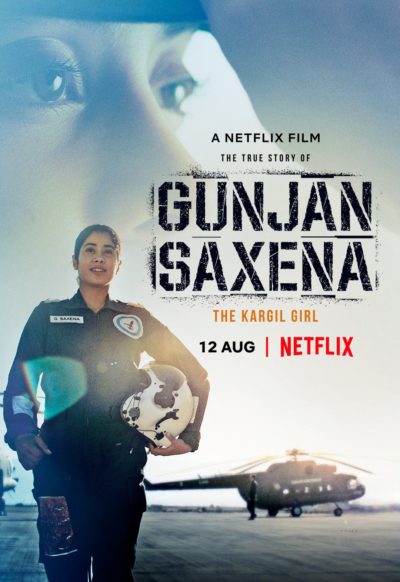
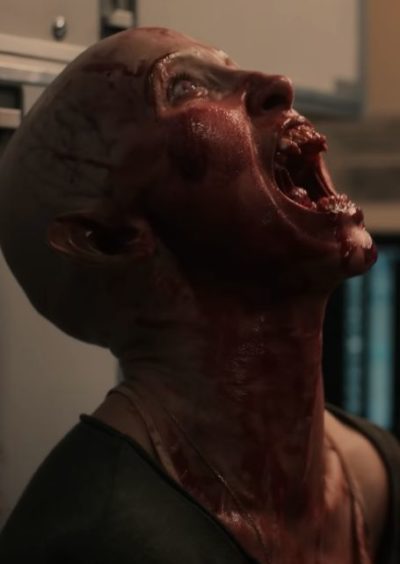
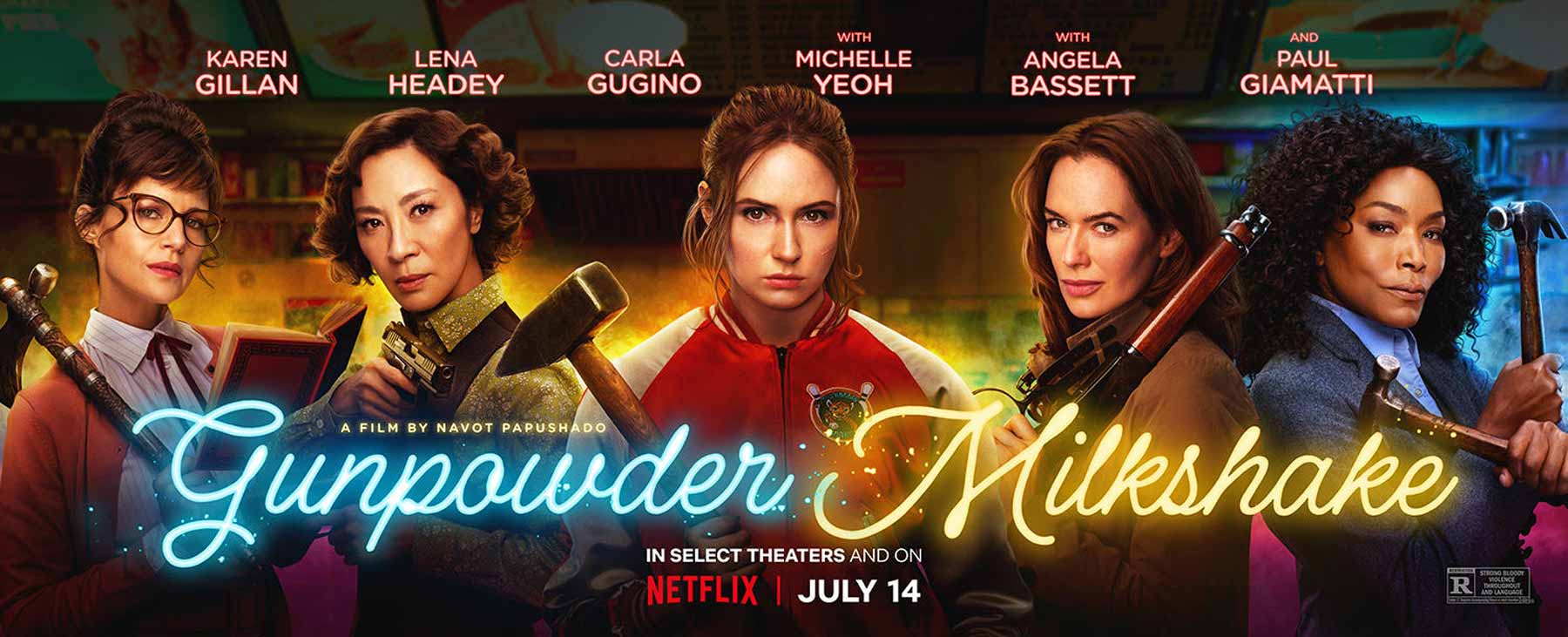 ★★★★
★★★★ Yeah, it’s kinda like that. As in John Wick, the hero(ine) is an assassin for hire, in a world where there exists a significant infrastructure of support for hitmen and hitwomen. After they fall foul of the wrong people, our hero(ine) becomes the target, but has more than enough skills to be able to fend for themselves, and takes the fight to their aggressors. Oh, yeah, and it also borrows significantly from Leon: The Professional, in that the assassin becomes the protector of a young girl. Hmm. But this leverages those two with very large injections of style. Not quite to the level of
Yeah, it’s kinda like that. As in John Wick, the hero(ine) is an assassin for hire, in a world where there exists a significant infrastructure of support for hitmen and hitwomen. After they fall foul of the wrong people, our hero(ine) becomes the target, but has more than enough skills to be able to fend for themselves, and takes the fight to their aggressors. Oh, yeah, and it also borrows significantly from Leon: The Professional, in that the assassin becomes the protector of a young girl. Hmm. But this leverages those two with very large injections of style. Not quite to the level of 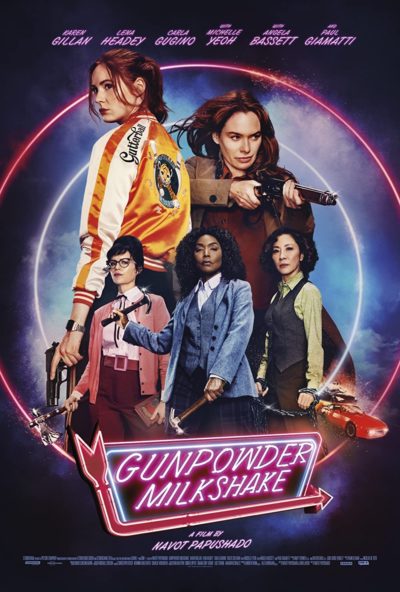 Said protagonist is Sam (Gillan), a killer with abandonment issues ever since her mom (Lena Headey) walked out on her, fifteen years earlier. Sam is tasked by her employer, Nathan (Giamatti), with recovering a haul of stolen cash. But she finds the thief was coerced into action, after his eight-year-old daughter (“8¾!”, as we are reminded on several occasions), Emily, was kidnapped. Likely reminded of her younger self, Sam takes custody of Emily, though the cash is destroyed in the process. This, and a previous job where she killed the son of a very important person, makes her persona non grata, and the hunter becomes the hunted.
Said protagonist is Sam (Gillan), a killer with abandonment issues ever since her mom (Lena Headey) walked out on her, fifteen years earlier. Sam is tasked by her employer, Nathan (Giamatti), with recovering a haul of stolen cash. But she finds the thief was coerced into action, after his eight-year-old daughter (“8¾!”, as we are reminded on several occasions), Emily, was kidnapped. Likely reminded of her younger self, Sam takes custody of Emily, though the cash is destroyed in the process. This, and a previous job where she killed the son of a very important person, makes her persona non grata, and the hunter becomes the hunted. It is notable that the film is split firmly along gender lines. with every one of the protagonists being women, and every one of the antagonists being men. However, it’s fortunate that seem largely to be about the extent of the messaging, and nobody particularly pays attention to this. Everyone is kept quite busy trying to kill each other. It’s also a bit less of an ensemble piece than I expected from the trailer. Especially in the first half, it’s Sam vs. the World, with the Librarians introduced, and then shuffled off to one side until Sam is ultimately forced to turn to them for help. That’s not particularly a criticism. I like Gillan, who was born about 25 miles from where I was, so is likely the nearest I have to a local action heroine. She can carry a film perfectly well, even if I’d rather have heard her natural Scots accent.
It is notable that the film is split firmly along gender lines. with every one of the protagonists being women, and every one of the antagonists being men. However, it’s fortunate that seem largely to be about the extent of the messaging, and nobody particularly pays attention to this. Everyone is kept quite busy trying to kill each other. It’s also a bit less of an ensemble piece than I expected from the trailer. Especially in the first half, it’s Sam vs. the World, with the Librarians introduced, and then shuffled off to one side until Sam is ultimately forced to turn to them for help. That’s not particularly a criticism. I like Gillan, who was born about 25 miles from where I was, so is likely the nearest I have to a local action heroine. She can carry a film perfectly well, even if I’d rather have heard her natural Scots accent.
















